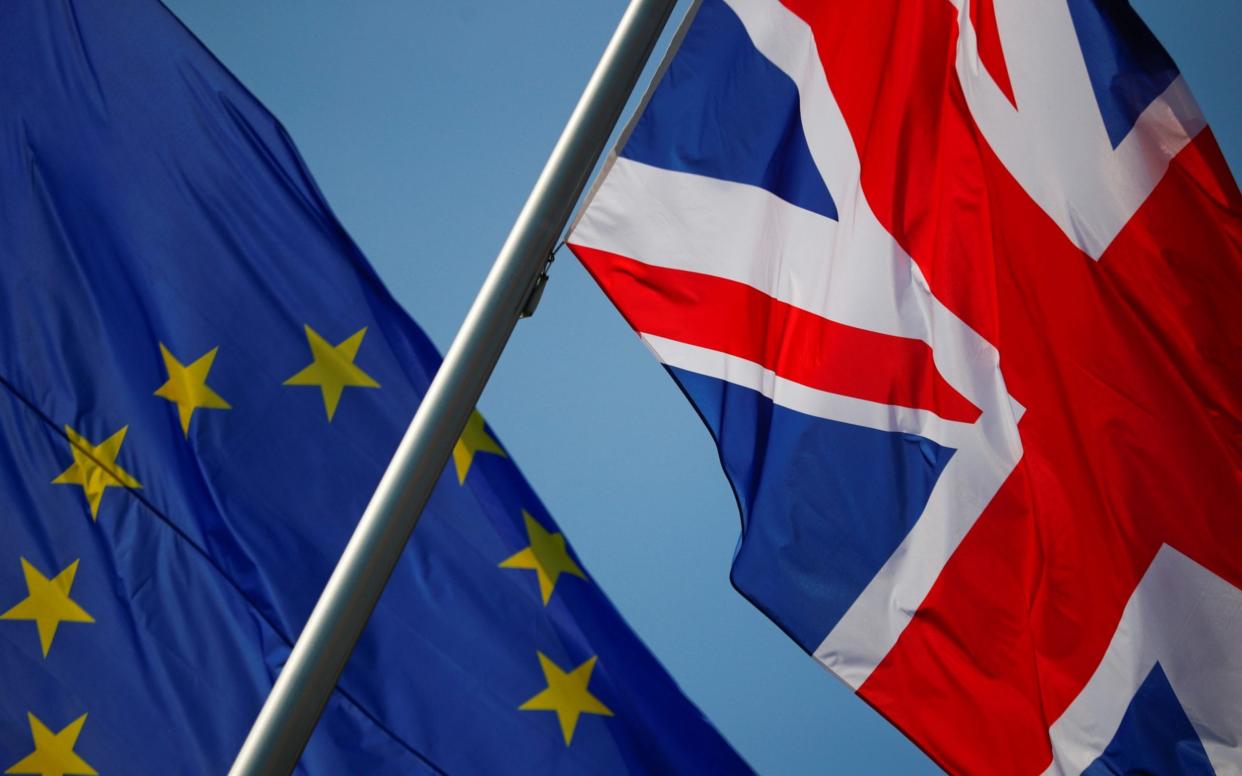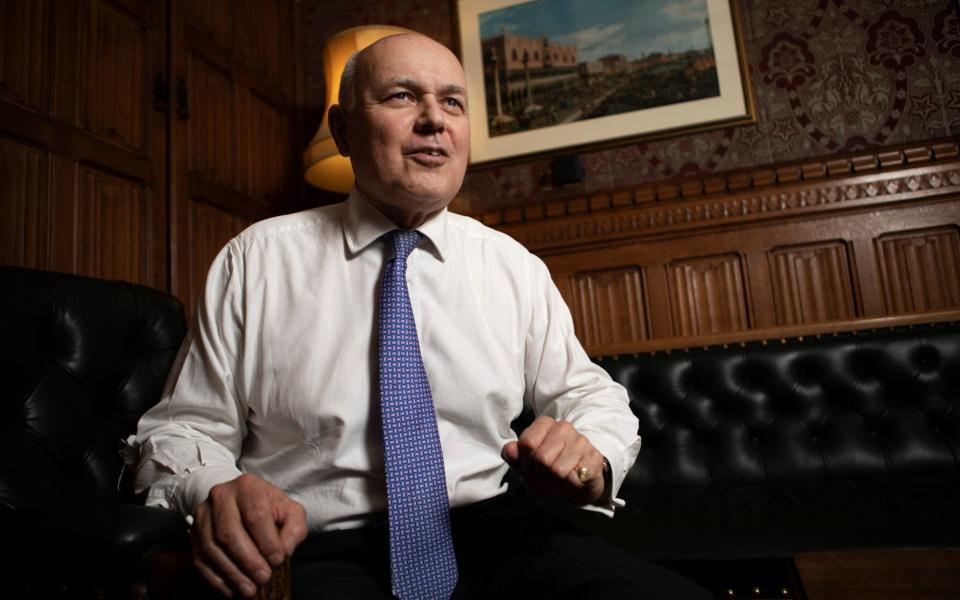Knives are out for a Withdrawal Agreement MPs fear is not worth the paper it's written on

He may have succeeded in ditching the Irish backstop and getting his Withdrawal Agreement through Parliament against all the odds. But as Boris Johnson prepares to redraw the Brexit battlelines with the EU as negotiations resume later this month, he once again faces the prospect of a backbench rebellion over the deal he struck with Brussels last October.
Although senior Brexiteers endorsed the treaty when faced with a remainer rebellion that threatened to reverse the referendum result, there is mounting disquiet among leave MPs that the agreement still isn’t worth the paper it is written on.
As with Theresa May’s original deal, Tory members of the European Research Group (ERG) who universally endorsed the Prime Minister’s replacement plan in January are now voicing serious concerns about its similarities to its predecessor.
Former Conservative party leader Sir Iain Duncan Smith, who is leading the charge, insists the creation of a border in the Irish Sea with customs and regulatory checks on goods crossing from Britain to Northern Ireland remains a major bone of contention.
“This sense of semi-detachment from the EU remains unacceptable to many,” he told The Telegraph.
There are also concerns over ongoing powers for the European Court of Justice over the UK, special legal privileges for EU citizens living in Britain and the threat that the UK could be forced to participate in ambitious EU defence and security arrangements.
The EU is also challenging the right of the UK to take back control of its fishing waters after Brexit - not to mention the reported £160 billion cost of the UK apparently remaining on the hook for the bloc’s ongoing liabilities.

A recent report by the Centre for Brexit Policy (CBP) calculated that a combination of liabilities arising from British membership of the European Investment Bank, the European Investment Fund and the EU Budget could produce a demand from Brussels of an extra payment rising to as much as £515 billion.
The report, endorsed by veteran backbenchers Sir Bill Cash and former minister Owen Paterson, described the “seriously flawed” Withdrawal Agreement as a “poison pill” warning that unless the most controversial provisions are replaced, the Government will fail to deliver on its pledge to “take back control” of the UK’s borders, laws, trade, and money when the country finally breaks with the 27-country bloc at the end of this year.
“Everyone knew this stuff before,” Sir Iain admitted. “The reason we voted for it is because we needed to be out of the EU in order to negotiate successfully as a sovereign nation after January 31. But the negotiators are going to have to block parts of it off.”
It isn’t only the Tory old guard who are kicking up a fuss. Newly elected Conservatives in so-called Red Wall seats are also beginning to worry that Mr Johnson - already facing criticism over his handling of the coronavirus crisis - will not be able to fully deliver his election promise of “getting Brexit done”.
There is little doubt that "red" Tory voters will switch back to Labour at the next general election if they get even so much of a whiff of retaliation. By a margin of 49 per cent to 26 per cent, people in so-called battleground ‘Red Wall’ seats polled by Savanta ComRes for the CBP study agreed with the statement: “Leaving the EU in 2020, rather than later, will mean that Britain recaptures the national independence it had before it joined the Common Market in 1973 sooner.”
This level of agreement rises to two thirds among "Red Wall" residents who voted Labour in the 2017 general election then switched to the Conservatives in the 2019 election – and nearly three quarter of people who voted Conservative in both elections.
Tory backbenchers are applying pressure on David Frost, Mr Johnson’s EU sherpa, to secure a “sovereignty complaint” final deal with Brussels which torpedoes demands that Britain’s business and employment laws remain in lockstep with those formed in Brussels. They also want a flat refusal of the EU's proposed control of “State aid” rules on government support of domestic industries.
Watch video below
Yet with just 144 days until the end of the transition period on December 31, just how likely is Brussels to cave into such demands?
"Frosty", as the UK’s chief negotiator is known in civil service circles, has asserted the UK’s desire to “be a fully independent country at the end of the transition period”, throughout the negotiations in his quest to secure a Canada-style free trade deal. Yet even if we leave without a deal - the Withdrawal Agreement still stands.
With the EU having just agreed a €750 billion Covid bailout package after days of infighting, there is a school of thought that the UK’s best negotiating position may be to play the Germans off against the French over the services sector. “There’s an argument that we shouldn’t pay them any money at all if we don’t get a deal,” said one Tory. “If we have acted in good faith but the EU has been obstructive. But our biggest lever is that Germany still requires London for cheap capital - and they do not want to see any of our financial services going to Paris.
“Germany needs a trade deal with Britain for its manufacturing and France needs it for its argi-produce, so the UK is in a very strong position to renegotiate the Withdrawal Agreement.”
Formal talks between the EU and UK are set to resume in Brussels on 17 August.


